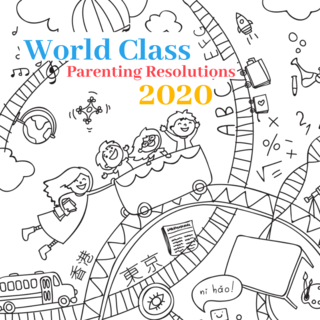Education
The Home Advantage to Education
Giving our kids a world-class education starts in our homes.
Posted January 1, 2020

Below is the answer to the question I am asked most frequently, “How can I support my child’s education?” Giving our kids a world-class education starts in our homes, in the car, on the bus, on the way to school, in-between soccer practice and piano lessons, messaging, at the dinner table, before bed, and on the weekends.
Print out this list and post it somewhere central in your home. Practice these tasks individually or by the handful. Some are long-term goals that may take weeks or months or even years to achieve, and others are small-scale tasks, experiments, or systems you can start implementing today.
Create a way to measure your results and remain accountable. Above all, align your values with your actions and commit to the long haul. (For in-depth explanations of these practices, please refer to World Class)
- Ask your kids: What is the purpose of your education?
- Ask yourself: How do you communicate your academic expectations to children?
- Make family time tech-free time.
- Take an inventory of your bookshelves. Your books can be an indicator of your education values for your kids.
- Create a parenting support network. Parents, teachers, coaches, babysitters, tutors, students, neighbors, etc.
- Be clear with teachers what your academic and behavioral expectations are.
- Learn about your school's technology policy. Ask questions.
- Read your children's school curriculum. Ask questions.
- Talk about the news. Find a way to talk about the presidential election at the dinner table.
- Make sure your kids can apply what they’ve learned in school in situations outside the classroom.
- Play games like Scrabble and Boggle to practice spelling and vocabulary.
- Use a tape measure to practice both the standard U.S. and metric systems of measurement.
- Discuss directions when you drive or take public transportation.
- Take advantage of errands like grocery shopping to practice math skills and learn about cooking, nutrition, and food waste.
- Invest in community. Be a patron of the arts, libraries, museums, community centers, concert halls, and local colleges
- When your child claims they're "bored," tell them to pick up a book. Always a book.
- Get to know your neighbors and local businesses from a different cultural background than your family.
- Show your kids a way to protect the environment. Talk about the implications of climate change.
- Learn words and phrases in another language with your kids.
- Create a family “brain room" or designated space for educational activities.
- Put the largest world map you can find on the wall in a highly trafficked area of your home.
- Separate your kids’ study space from their sleep space.
- Subscribe to hard-copy news sources, like The New York Times, The Wall Street Journal, The Economist, The New Yorker.
- Have a healthy debate on any topic with your children. Ask them to argue with three valid points, and then ask them to consider the flip side.
- Subscribe online to Merriam-Webster’s word of the day. Discuss the word daily.
- Find the definition of "global competence" (it’s in World Class!) and discuss it.
- Review all the practical skills in life that your child may not learn in school: household repairs, laundry, checkbook, cooking.
- Read. Read. Read. All the time to your child. From an actual paperbound book.


